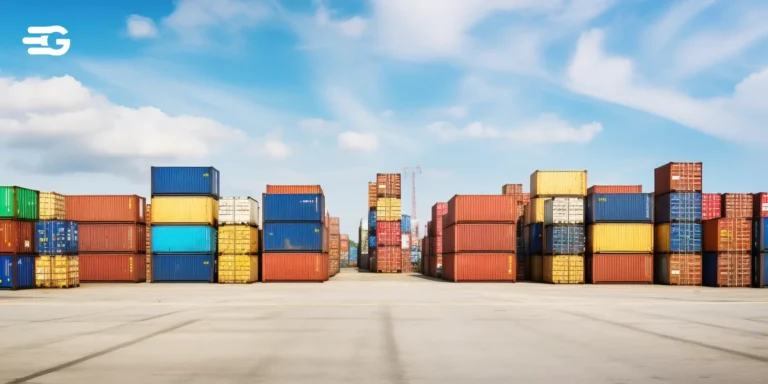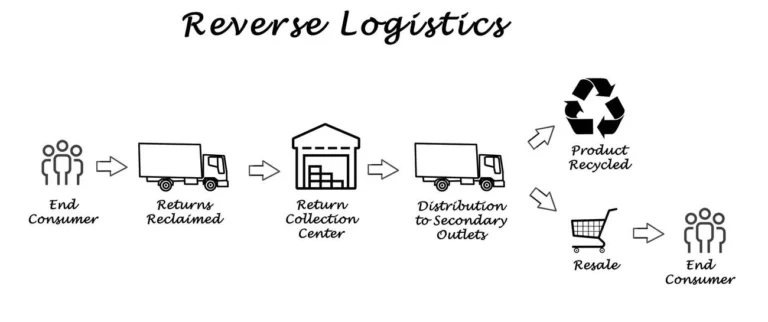What is Logistics Management and Why it is Important?
Logistics management plays a crucial role in modern businesses. It ensures that goods are moved efficiently from one place to another. For enterprises handling large shipments, a well-organized logistics process can drive growth and profitability.
In this blog, we will explore what logistics management is and why it’s important. We’ll also discuss its benefits, functions, and strategies. Let’s dive in.
What is Logistics Management?
It refers to the planning, execution, and control of the flow of goods, services, and information. The goal is to ensure timely delivery while minimizing costs. It covers processes like transportation, warehousing, inventory management, and distribution.
Businesses use logistics management to keep operations smooth. It involves detailed planning and coordination across teams. For example, ensuring raw materials reach a factory on time is a logistics task. Similarly, delivering finished products to customers also falls under logistics management. To better understand how logistics integrates into broader operations, explore transport and logistics management.
Logistics management solutions help track shipments, manage inventory, and predict delivery times. These tools provide real-time updates, ensuring better control over the supply chain. Advanced logistics management software makes these processes more efficient and reliable.
Why Logistics Management is Important?
Logistics management is vital for businesses to meet customer expectations. It helps in reducing costs, improving efficiency, and ensuring timely delivery. Without proper logistics, companies risk delays, wasted resources, and customer dissatisfaction.
Enterprises handling large shipments depend on logistics to maintain supply chain continuity. For example, manufacturers need raw materials on time to keep production schedules intact. Freight forwarders rely on logistics to manage shipments across multiple locations. Understanding the difference between supply chain and logistics management helps businesses align these processes effectively.
Efficient logistics management improves decision-making by providing insights into delivery timelines, inventory levels, and transportation costs. Businesses can use this data to adjust operations and respond to challenges.
6 Benefits of Logistics Management
Effective logistics management offers a range of measurable benefits that directly impact business operations. Here are six key advantages:
- Cost Savings: Streamlined logistics processes minimize transportation and warehousing expenses. Businesses achieve savings by optimizing routes, consolidating shipments, and reducing inefficiencies. Implementing strategies for reducing logistics costs can make a significant difference.
- Improved Customer Satisfaction: Ensuring on-time and accurate deliveries fosters trust and loyalty among customers. Reliable logistics enhances brand reputation and drives repeat business.
- Better Inventory Management: By maintaining optimal inventory levels, logistics prevents overstocking and shortages, ensuring smoother operations. Advanced warehouse logistics tools can further optimize this process.
- Enhanced Operational Efficiency: The use of automation and advanced tools eliminates errors and accelerates processes. Efficient logistics contributes to higher productivity across the supply chain.
- Scalability for Growth: A robust logistics framework allows businesses to scale operations seamlessly. This is essential when handling increased shipment volumes or entering new markets.
- Environmental Sustainability: Optimized logistics practices reduce fuel consumption, packaging waste, and emissions. Companies can adopt green supply chain practices to achieve eco-friendly operations while saving costs.
Key Logistics Management Functions
Logistics management involves several critical functions. Each plays a role in ensuring smooth operations:
- Transportation Management: This includes choosing the best routes, carriers, and modes of transport. Efficient transportation minimizes delays and costs. An in-depth understanding of transportation and distribution management supports these efforts.
- Warehousing and Storage: Proper storage ensures goods are safe until they’re needed. Warehousing also supports demand planning. Warehouse optimization ensures effective use of space and resources.
- Inventory Control: Managing stock levels prevents shortages or surpluses, ensuring products are available when required.
- Order Fulfillment: Logistics ensures orders are processed, packed, and delivered accurately. This directly impacts customer satisfaction.
- Packaging and Handling: Proper packaging protects goods during transit and ensures compliance with shipping regulations.
- Reverse Logistics: This covers returns, recycling, and disposal of goods. Effective reverse logistics improves sustainability and customer satisfaction.
Each function requires coordination across teams and technology support. For instance, integrating warehouse management software with transportation tools ensures seamless operations.
Logistics vs Supply Chain Management
Logistics management and supply chain management (SCM) are often used interchangeably, but they are different.
- Logistics Management focuses on the movement and storage of goods. It deals with transportation, warehousing, and delivery.
- Supply Chain Management is broader. It includes logistics but also covers sourcing, production, and customer relationships. Exploring supply chain and logistics management clarifies these roles.
Think of logistics as a subset of SCM. Logistics ensures goods are delivered efficiently. SCM oversees the entire process, from raw materials to end customers.
Smart Logistics Management Strategies
Smart strategies make logistics more efficient. Businesses need to adopt the right practices to stay competitive. Here are some effective strategies:
- Use Technology: Implement software for real-time tracking and inventory management. Tools like logistics management systems optimize routes and reduce costs.
- Collaborate with Partners: Work closely with freight forwarders and carriers. Strong partnerships ensure smooth operations.
- Focus on Data: Use supply chain analytics to forecast demand, manage inventory, and improve decision-making.
- Optimize Transportation: Choose eco-friendly and cost-effective transport options. Consolidate shipments to save money.
- Invest in Training: Train teams to handle logistics challenges efficiently. Skilled teams ensure fewer errors.
- Plan for Disruptions: Have contingency plans for delays, natural disasters, or other challenges. This ensures operations remain smooth.
Conclusion
Logistics management is essential for businesses handling large shipments. It improves efficiency, reduces costs, and ensures customer satisfaction. By adopting smart strategies and leveraging technology, enterprises can achieve better results.
For businesses partnering with freight forwarders, logistics plays a key role in maintaining supply chain continuity. Investing in supply chain logistics optimization ensures long-term growth and profitability.






